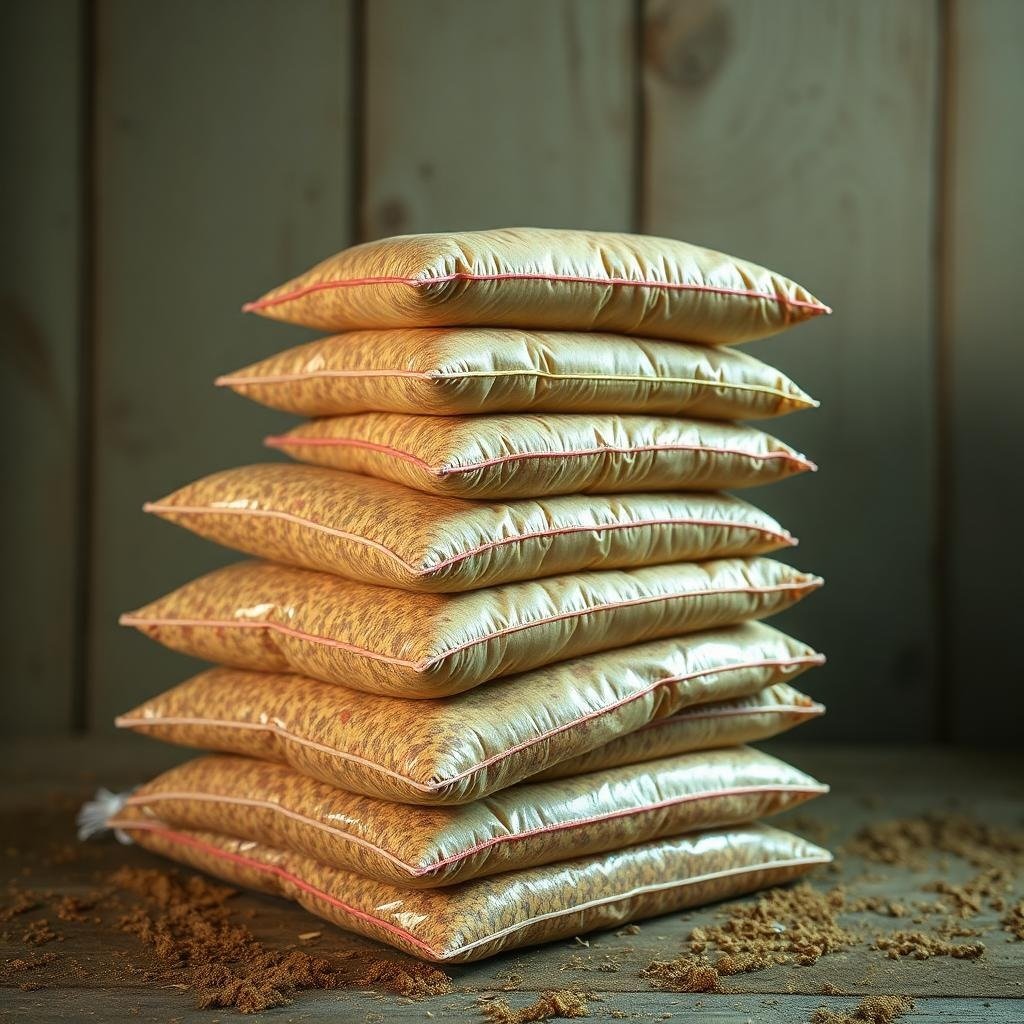Chicken Feed

There are several types of chicken feed available, each with its own advantages and disadvantages.
Commercial layer feed is a popular choice as it is specially formulated to meet the nutritional needs of laying hens, providing a balanced mix of proteins, vitamins, and minerals. The pros include consistent nutrition and convenience, while the cons can be higher cost and reliance on processed ingredients.
Organic feed is made from natural and non-GMO ingredients, appealing to those seeking chemical-free options. Its benefits include healthier birds and better quality eggs, but it tends to be more expensive and may have limited availability.
Scratch grains, such as corn, wheat, and oats, are used as treats or supplements, providing chickens with entertainment and additional energy. However, they are not nutritionally complete on their own and can lead to imbalanced diets if not managed carefully.
Homemade or raw feed options can be tailored to specific dietary needs, but require careful planning to ensure nutritional adequacy. Overall, choosing the right type of chicken feed depends on the farm’s goals, budget, and the health of the flock.

Benefits of Homegrown Eggs
- Freshness: Eggs are typically much fresher than store-bought, often collected daily.
- Nutritional Value: Fresh eggs can have higher levels of nutrients, including vitamins, minerals, and omega-3 fatty acids.
- Potentially Better Quality: Home-raised chickens are less likely to be fed additives or preservatives.
- Taste: Many people find homegrown eggs to have a richer, more flavorful taste.
- Cost Savings: Over time, raising your own chickens can reduce grocery bills.
- Control Over Diet and Living Conditions: You can ensure your hens are raised humanely and fed healthy, natural diets.
- Environmental Benefits: Raising chickens at home reduces the carbon footprint associated with commercial egg production.
- Educational Value: Keeps learning about animals, farming, and sustainability.
- Sustainability: Contributes to a more self-sufficient lifestyle by producing your own food.